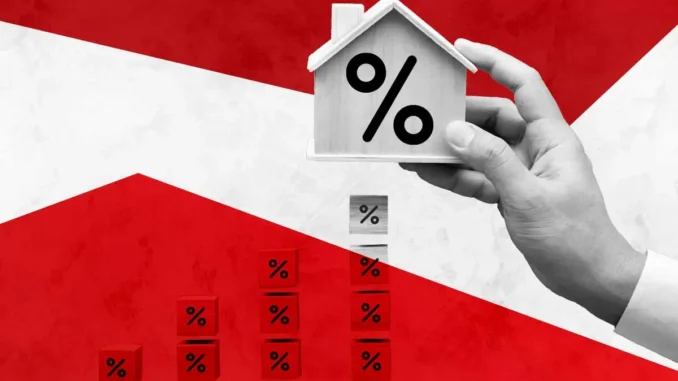
Elevated mortgage rates are continuing to give homeowners a reason to stay at their current homes, according to the 2023 Borrower Insights Survey conducted by ICE Mortgage Technology. But while the inventory-lacking market has caused issues for buyers, one bright spot is that about half of the current homeowners say they plan to sell their homes in the next two years, according to survey data.
Of those who plan to remain in their homes, about one-third (36%) specifically cite high interest rates as the reason for staying put.
The survey polled 2,010 individuals age 18 and older in the U.S. in January and February. Of the total surveyed, 1,005 owned their current residence and had taken out a mortgage loan within the last five years. The rest of the participants were currently renting.
Borrowers were asked about the factors and the elements of the experience that are most important to them during the loan process. Renters were asked about their perceptions of the home buying experience and their expectations about the requirements of homebuying. The survey was fielded using the Qualtrics Insight Platform and the panel was sourced from Lucid.
What are borrowers looking for?
Nearly two-thirds of recent borrowers (63%) say they plan to seek new financing in the form of home equity loans, reverse mortgages, refinancing, or investment property loans.
About 34% of current homeowners who have taken out a mortgage in the last five years plan on taking out a home equity loan in the next year and 29% say they have considered refinancing. About 24% have considered a reverse mortgage, and 31% have considered investment property loans – an indication that there is still some degree of confidence in rising home values.
Current homeowners who were recently involved in the mortgage process cited “more space” and” finding a good deal on a house” as the main reasons for buying a home, according to the survey.
But while recent borrowers cite more space and good deals as the reason for buying, fewer respondents say they are trying to transition from renting to buying – which may signal that this type of transition is difficult in the current environment.
That result is a departure from last year, when “not wanting to rent anymore” (38%) was cited more often than finding a good deal (36%) or needing more space (36%).
“The year-over-year change may indicate that it is more difficult in the current environment to transition from renting to home ownership,” the survey said.
Active home buying market coming?
Still, it seems likely that the home buying market will stay active or become more so in the relatively near future. Nearly half of current homeowners, as well as many younger homeowners, say they are planning to sell their home in the next two years.
About 46% of respondents plan to sell their home in two years or less, according to the survey results. The reasons cited most were to cash in on increased home equity/value (39%), to change scenery (38%), or to downsize or upsize (36%).
Of the renters who are motivated to buy, Generation Z leads the sentiment.
About 37% of Gen Z say they believe that owning a home is within their reach, compared to 27% overall. About 67% of Gen Z and Millennial renters say they are open to relocation as a path to homeownership, compared to just 448% of those Gen X and older.
Homeowner, renter concerns
Saving money is a top concern for homeowners and renters, according to the survey. About 67% of people surveyed reported that when financing a mortgage, saving money overall is their biggest concern, followed by low lender fees at 56%.
When choosing a lender, Baby Boomers want low interest rates. Younger generations are more focused on finding a variety of loan terms and product options, study results show.
In addition, the survey showed borrowers tend to have different kinds of outreach preferences based on their experiences.
Experienced borrowers – defined in the survey as those who have taken out five or more mortgages in their lifetime – say they favor digital offerings. Borrowers, especially those who are least experienced, say they rely on referrals from family, friends or realtors to choose lenders.
“In other words, relationships mattered to high-interest rate borrowers. These borrowers are therefore likely to consider more than one lending institution when going through the mortgage process,” the survey report states.



